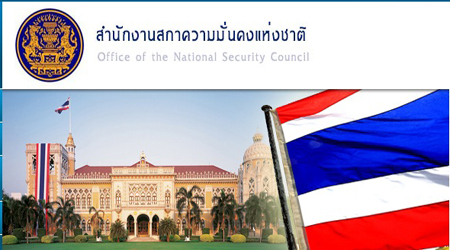New policy blueprint for the Deep South
The National Security Council is speeding up the drafting of a new three-year policy blueprint for the three southernmost provinces of Pattani, Narathiwat, Yala and parts of Songkhla.

The new policy blueprint will replace the current on which is due to expire later this year. It covers development and security aspects. But an important aspect of the policy blueprint is that public opinions are incorporated in the blueprint so that the policy will meet the aspirations and the way of life of the people.
In accordance with the current policy, the conditions of unrest problem in the Deep South were identified at personnel level, structural and cultural levels. The personnel condition is divided into four parts namely the part regarding power abuses by the authorities; the use of violence by anti-government elements; conflict of interests and underground business activities and violence caused by revenge, hatred or personal vendetta.
The most progressive aspect of the policy blueprint is the one which states that the government opens a window for talks with the insurgents. And this aspect is incorporated in the new policy blueprint.
Once the blueprint is completed, it will be tabled to the advisory council for the administration and development of southern border provinces for consideration. For the next step, the Southern Border Provinces Administration Centre will draw up development strategies in correspondence with the policy blueprint. The same also applies to the Internal Security Operations Command.
An informed NSC source said that the new policy blueprint which is in the process of being drafted will be an extension of the current one – that is it will carry on the peace talks process between the government and the separatist groups.
NSC chief Paradorn Pattanathabutr reportedly said that talks with the Barisan Revolusi Nasional which has been suspended for several months since last year will be continued.
He denied that the escalation of violence in the Deep South was partly due to his shifting of focus to political conflict.
